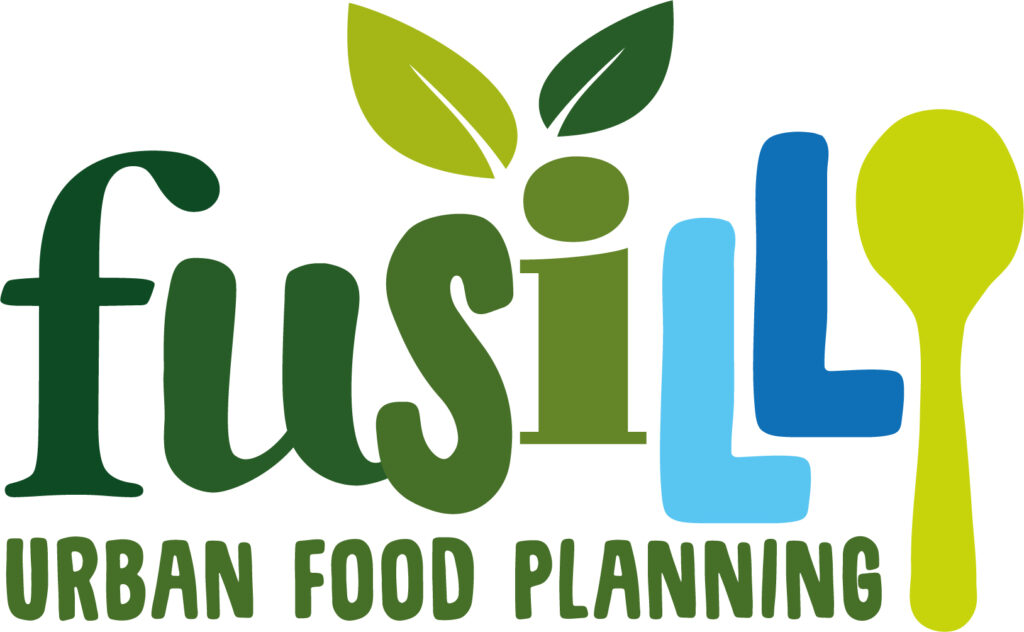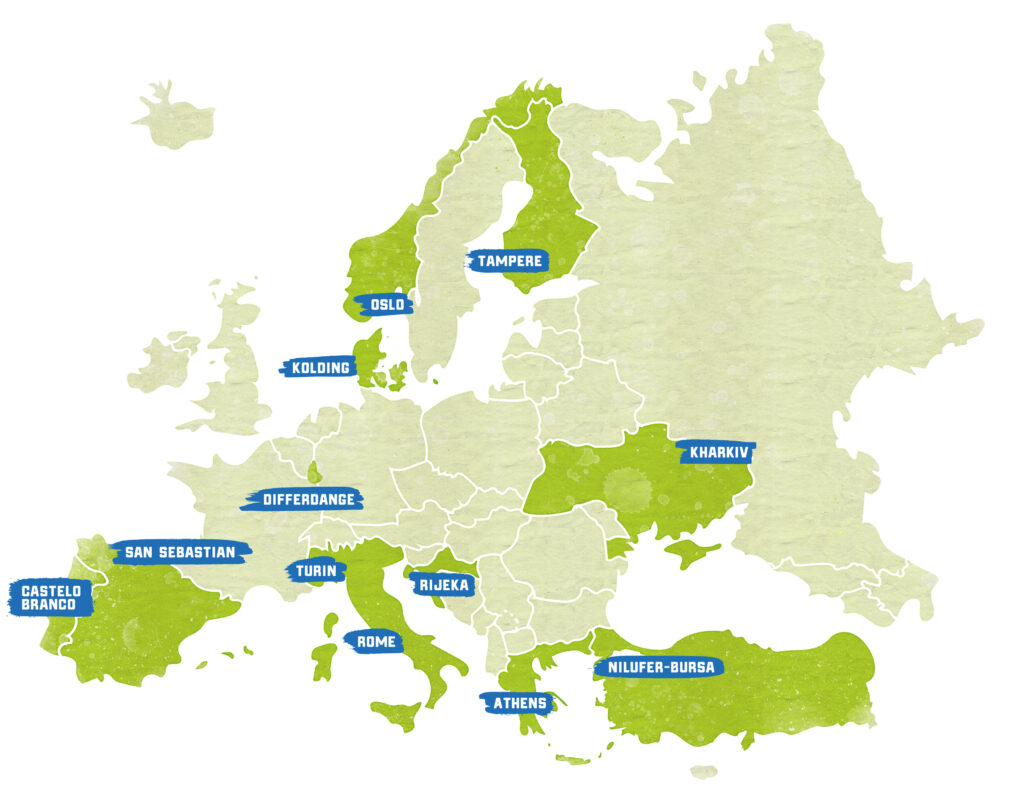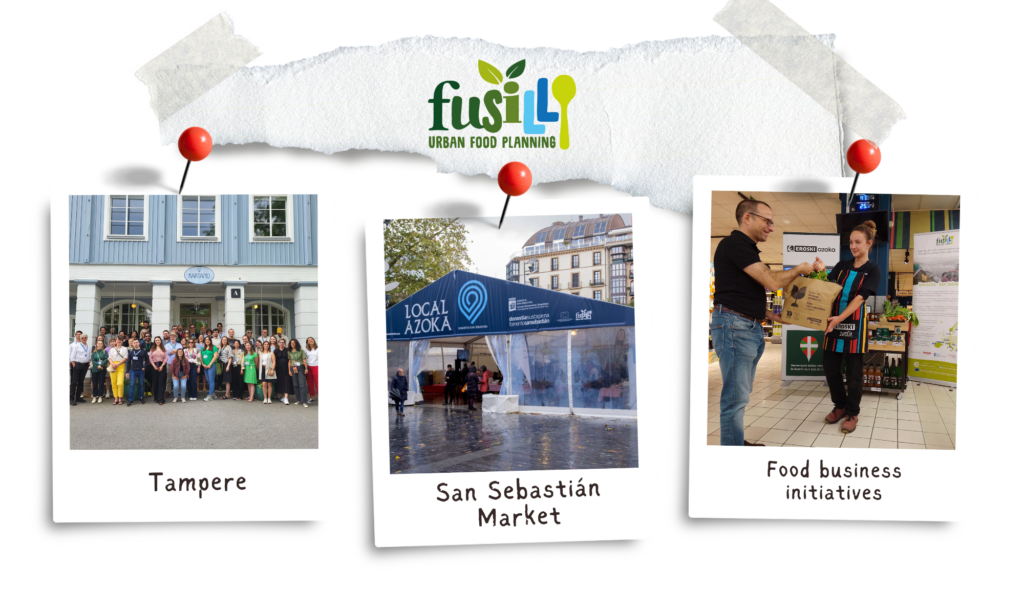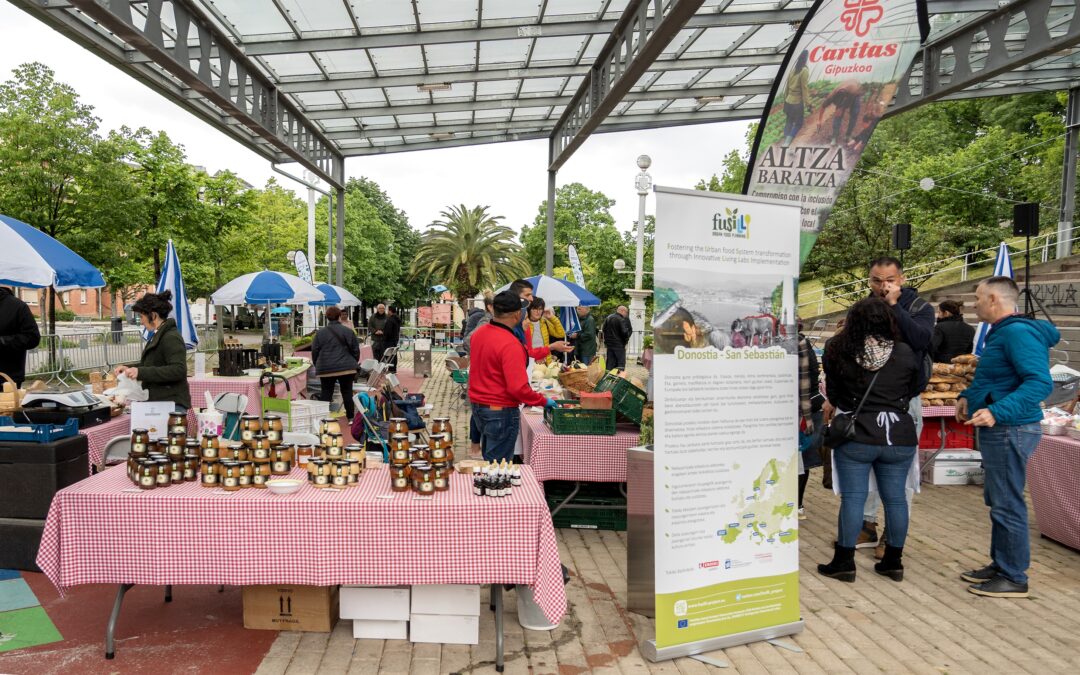Four years ago I first entered the complex world of the food system. I didn´t quite know what to expect. I considered it a far field, with technical terms and debates that seemed to belong only to experts in the field. Today, after all this time, every time I have the opportunity to walk around one of the FUSILLI cities and see the changes we have helped to bring about, I feel a sense of pride that is hard to describe.

There is no need to stop. Changes are recognisable with new initiatives underway, a market where local producers with their local and seasonal products are the main characters, hearing how citizens have started to talk about sustainable food naturally, or a community garden flourishing in a previously unused space. There are small signs that confirm that something has changed. That this effort has been worthwhile

I don´t have to travel to the FUSILLI cities to remember the project. It is enough to walk around Valladolid to remember that what we have done over the years is visible and important in many other cities. The boost of local food. That is FUSILLI. The emergence of a food strategy. That is FUSILLI. The use of food waste. That is FUSILLI. The awareness of cities towards healthier and more sustainable food. That is FUSILLI. The initiatives of food companies to bring local producers closer together. That is FUSILLI. Initiatives to make food more accesible to the whole population. That is FUSILLI. Even FUSILLI is to bring all of this into policies that help to integrate all of this into a community. In a city. In a region.
At the beginning, it all seemed like a huge challenge. Twelve cities with different realities, hundreds of actions, multiple actors involved. Coordinating efforts and making each initiative make sense in its context was a challenge. But, in the end, the key has been people. The cooperation between scientists, local governments, farmers and consumers created a learning network that overcame the initial barriers. The most beautiful thing about FUSILLI has been that unexpected synergy, those human connections that made possible what on paper seemed impossible.
It was not all easy. I remember endless meetings trying to fit together different perspectives, moments of frustration when progress was not as fast as we wanted, and the uncertainty of knowing whether all this would leave a real footprint. But the footprint is there. The results are not only measured in numbers, but in the transformation of cities and people’s mindsets.

Personally, I believe that for CARTIF, FUSILLI has meant much more than a European project. It has allowed us to grow, to better understand the role we can play in transforming food systems and, above all, to strengthen our commitment to sustainability. The food system defines the well-being of our communities and the balance of our environment. It is not just about what we eat, but how we produce, distribute and manage that food in an increasingly challenging world.
Moreover, this experience provides a valuable lesson for the private sector. Companies have a key role to play in this transformation. Adapting business models to a more sustainable approach is not only an environmental necessity, but also an opportunity for innovation and differentiation. The solutions developed at FUSILLI can be replicated and scaled up at the business level, from waste recovery to new forms of distribution and conscious consumption. It is not only the responsibility of cities and governments, but also of companies that have the power to lead change in the food value chain. They are key players in this process.
FUSILLI closes a cycle, but leaves many doors open. We now know that transformation is possible and that every action, however small it may seem, adds up. It has taught us that innovation and sustainability can go hand in hand and that real change happens when vision and commitment come together.
We will continue to pursue new solutions, explore innovative ways to integrate technology with sustainability and facilitate the transition to more resilient and healthy cities. But we cannot walk this path alone. Food companies are key partners in this transformation. We need their commitment, their capacity for innovation and their willingness to be part of the change. Because transforming the food system is not just a challenge, it is an opportunity to reinvent the way we live, produce and consume.
Because transformation is not a destination, but a continuous journey of learning, adaptation and innovation.
- FUSILLI, much more than a project - 21 February 2025
- Towards a Food Revolution: UN Food System Summit + Stocktacking Moment - 25 August 2023
- Are we exposed to water and food shortage ? - 26 November 2021
